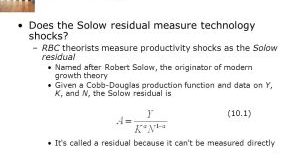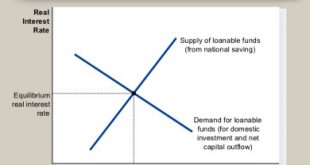Was als gerecht gilt Schreiber: Anstatt den Muslimen zu sagen: “Werdet Teil dieser Gesellschaft”, hieß es: “Haltet euch von der westlichen Lebensweise fern. Seid nicht mit Christen befreundet. Geht raus und versucht zu missionieren.” Das waren – vorsichtig ausgedrückt – die Aufforderungen. Besonders krass fand ich die Aussage: “Ihr könnt nicht Muslime und Demokraten zugleich sein.” Die Predigten, die wir angemeldet filmten, hatten eine moderatere Tonalität....
Read More »Deniz Yücel im Einzelinterview mit Maybrit Illner
Deniz Yücel im Einzelinterview mit Maybrit Illner [embedded content] Advertisements
Read More »Solow’s Nobel Prize lecture
Solow’s Nobel Prize lecture One of the achievements of growth theory was to relate equilibrium growth to asset pricing under tranquil conditions. The hard part of disequilibrium growth is that we do not have — and it may be impossible to have — a really good theory of asset valuation under turbulent conditions … One important tendency in contemporary macroeconomic theory evades this problem in an elegant but (to me) ultimately implausible way. The idea is...
Read More »Moments you never forget (personal)
Moments you never forget (personal) Courage is a capability to confront fear, as when in front of the powerful and mighty, not to step back, but stand up for one’s rights not to be humiliated or abused. Courage is to do the right thing in spite of danger and fear. To keep on even if opportunities to turn back are given. Dignity, a better life, or justice and rule of law, are things worth fighting for. Not to step back — in spite of confronting the mighty...
Read More »DSGE models — false by construction
DSGE models — false by construction Advances in mathematical tools and in economic theory rapidly changed the landscape. From the perspective of macroeconomics, the streamlined DSGE models of the 1980s begot much richer models in the 1990s. One remarkably successful extension was the introduction of nominal and real rigidities, i.e., the conception that agents cannot immediately adjust to changes in the economic environment. In particular, many of the new...
Read More »True Bromance
[embedded content] Advertisements
Read More »The Lucas critique comes back with a vengeance in DSGE models
The Lucas critique comes back with a vengeance in DSGE models Both approaches to DSGE macroeconometrics (VAR and Bayesian) have evident vulnerabilities, which substantially derive from how parameters are handled in the technique. In brief, parameters from formally elegant models are calibrated in order to obtain simulated values that reproduce some stylized fact and/or some empirical data distribution, thus relating the underlying theoretical model and the...
Read More »The loanable funds fallacy
The loanable funds fallacy The loanable funds theory is in many regards nothing but an approach where the ruling rate of interest in society is — pure and simple — conceived as nothing else than the price of loans or credits set by banks and determined by supply and demand — as Bertil Ohlin put it — “in the same way as the price of eggs and strawberries on a village market.” It is a beautiful fairy tale, but the problem is that banks are not barter...
Read More »Scientific racism and the alt-right
Scientific racism and the alt-right Welche Rolle Gene beim IQ spielen, kann man untersuchen, indem man identische Zwillinge findet, die bei ihrer Geburt getrennt wurden und getrennt voneinander groß wurden. Es gibt nur wenige untersuchte Fälle, in denen Zwillinge in unterschiedlichen Familien aufgewachsen sind, die gleichzeitig zu verschiedenen sozialen Schichten mit abweichendem Bildungsniveau zählten. Untersuchungen zeigten hier deutliche Unterschiede in...
Read More »Finland ends basic income experiment
Finland ends basic income experiment Europe’s first national government-backed experiment in giving citizens free cash will end next year after Finland decided not to extend its widely publicised basic income trial and to explore alternative welfare schemes instead. Since January 2017, a random sample of 2,000 unemployed people aged 25 to 58 have been paid a monthly €560 (£475), with no requirement to seek or accept employment … The scheme – aimed primarily...
Read More » Lars P. Syll
Lars P. Syll








